

Pursuit of Style: Uniqueness Woven by Relationships
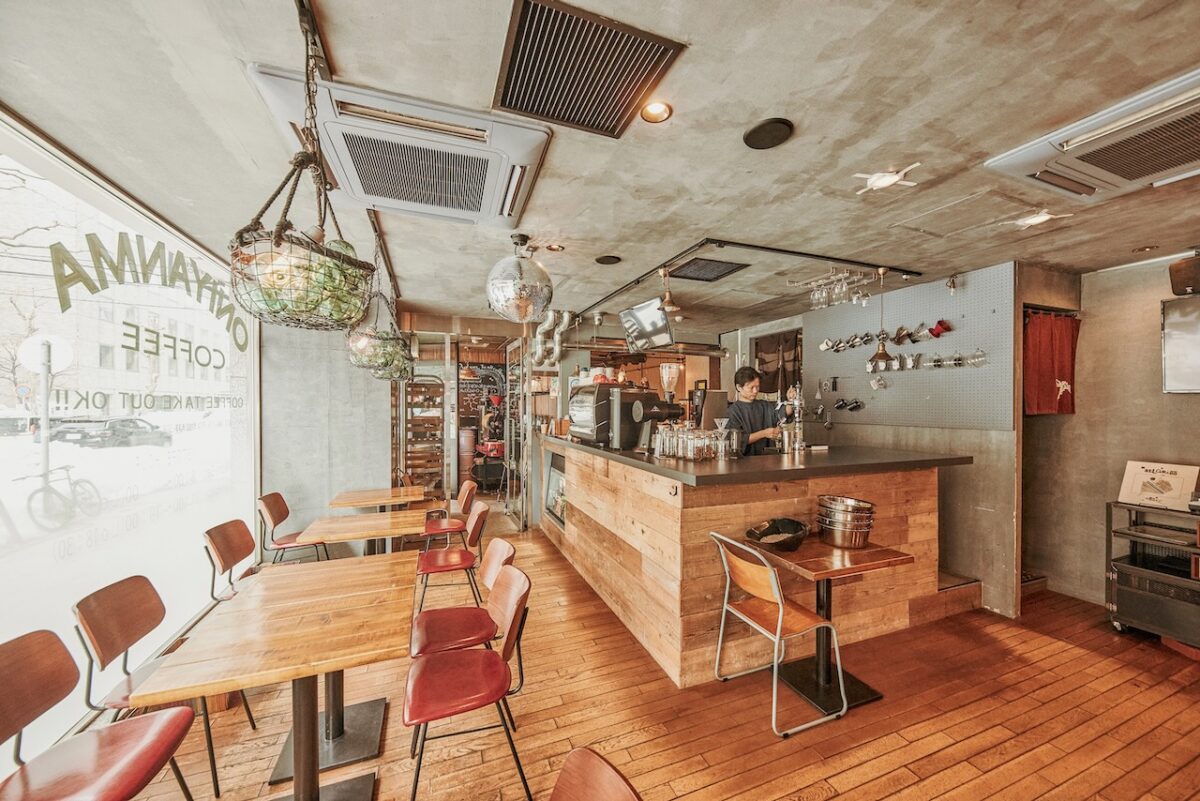
Located in the city of Sapporo, Hokkaido, ONIYANMA COFFEE&BEER serves a cup of coffee to brighten people’s day, whether they come in for a meal, a chat or a rendezvous. Since its opening in 2016, the specialty coffee shop has been injecting a breath of fresh air into the northern Japanese city. Takehiro Yonezawa, who is responsible for roasting, has brought a brand-new style into Sapporo’s coffee scene.
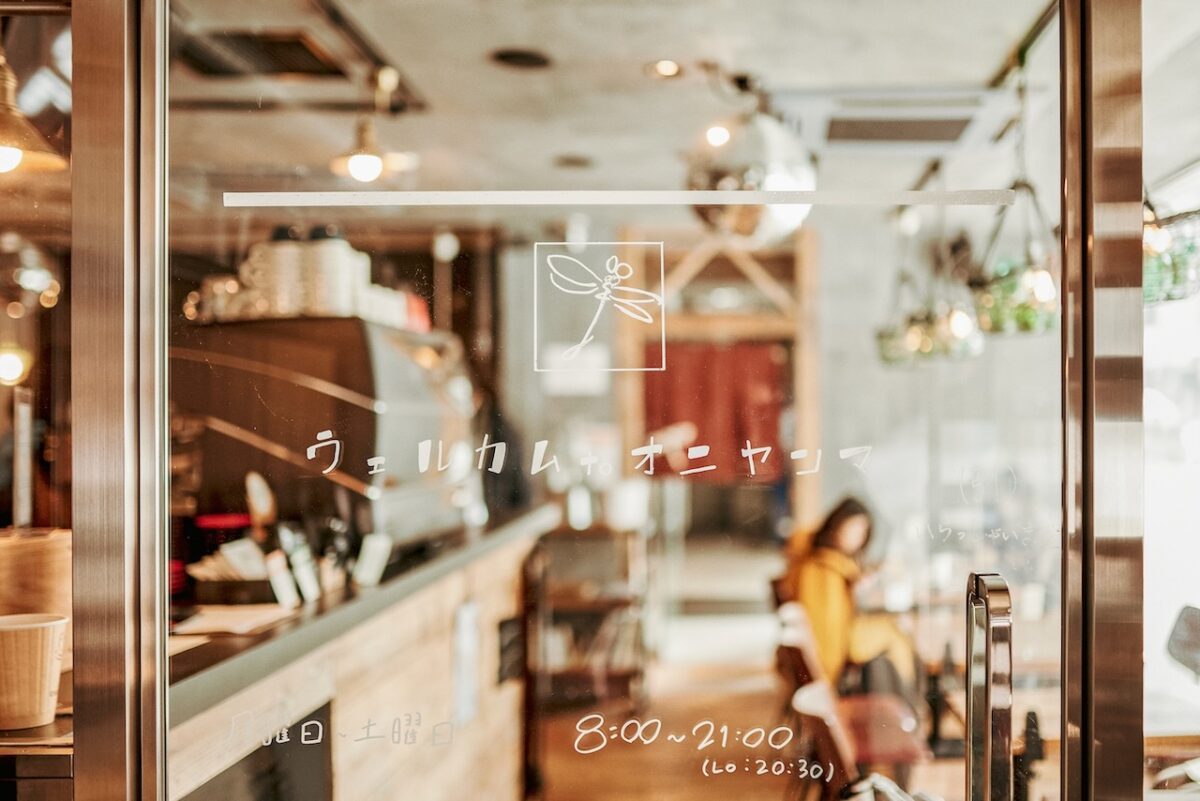
Connections set in motion
The store’s logo looks like a casual drawing of oniyanma, or the giant dragonfly, scribbled in pencil. But behind this endearing, gentle brushwork lies a strong determination.
“It symbolizes our resolve to win battles,” Yonezawa says. “Hundreds of years ago in Japan, the giant dragonfly was revered as an auspicious bellwether of victory and called ‘kachi-mushi,’ or a victorious insect. Some warlords of yore adorned their helmets with an emblem of the dragonfly. The name is even more apt because we are also aspiring to take off from Hokkaido and fly farther afield. Our president is interested in the Asian market. So he often talks about expanding this business.”
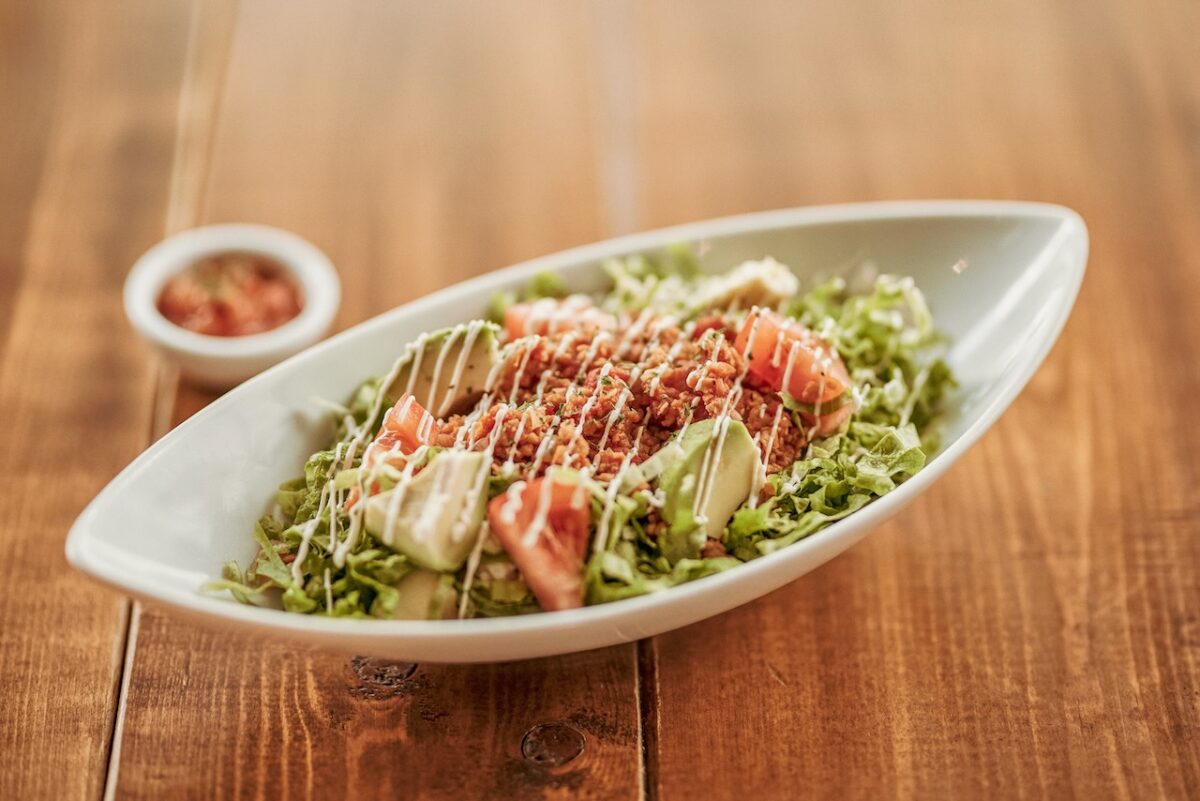
ONIYANMA COFFEE&BEER opened in 2016, with a wide-ranging menu of coffees, craft beer, and vegetarian and vegan foods cooked on the premises. Yonezawa joined the shop as a part-timer two months after its inception. Soon afterwards, he became part of the product development team, with the company counting on his over 10-year experience in restaurant kitchens.
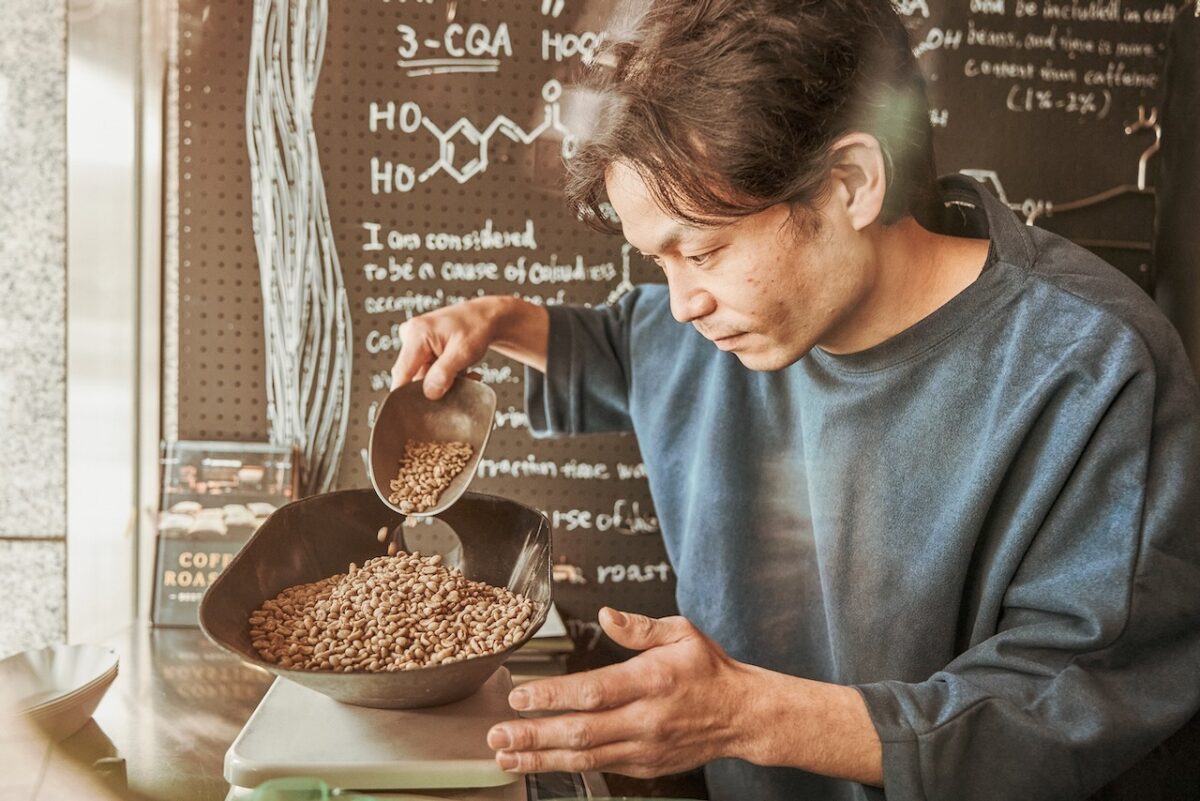
It was some two years later that Yonezawa, who had always wanted to try his hand in roasting, stepped up to take over the position, after his predecessor and former store manager left and went independent.
“I hadn’t worked with specialty coffee until I started working at this store. But since I was curious about roasting, I asked my predecessor to teach me how to roast. Now, though, I do all kinds of things from serving customers to working the kitchen because we are short-staffed.”
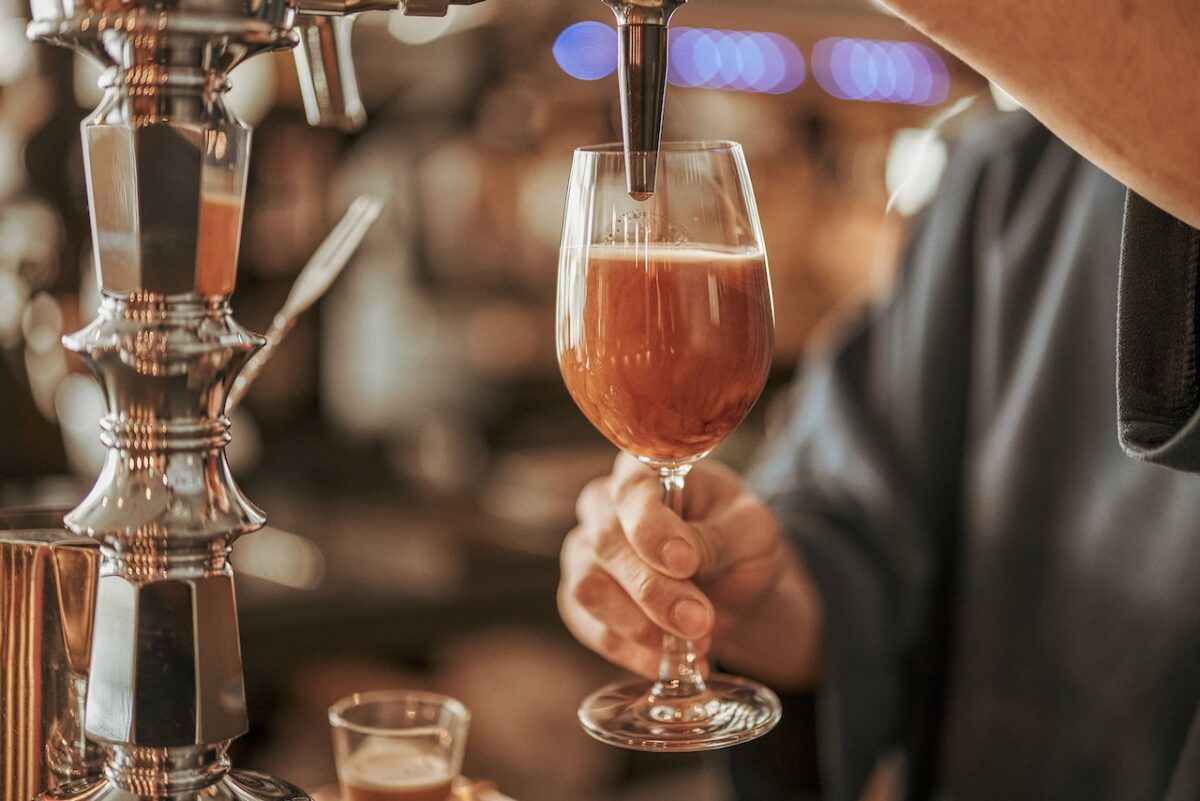
His fourth year into roasting, 2021 was the year of opening new horizons for Yonezawa. At year’s end, he co-hosted “Coffee and Whiskey,” an event that grew out of an idea floated in a conversation among Yonezawa and roaster friends when they were drinking together.
The aim of this event was to introduce coffee lovers to the world of whiskey and whiskey fans to the world of coffee. The event featured four shops – two each from whiskey and coffee – offering various coffees and whiskeys as well as Irish coffee, a cocktail made with coffee and whiskey, and other coffee concoctions. The event was a success. Overall, participants reacted favorably to being able to casually try out drinks from stores they’d always been interested in.
“To the uninterested, both coffee and whiskey can seem like a drink for the few maniacs. But I believe the two drinks are similar in that each has a profound depth to it. I hope to continue this event. I also want to organize an occasion where roasters from across Sapporo get together to enjoy coffees from various origins.”

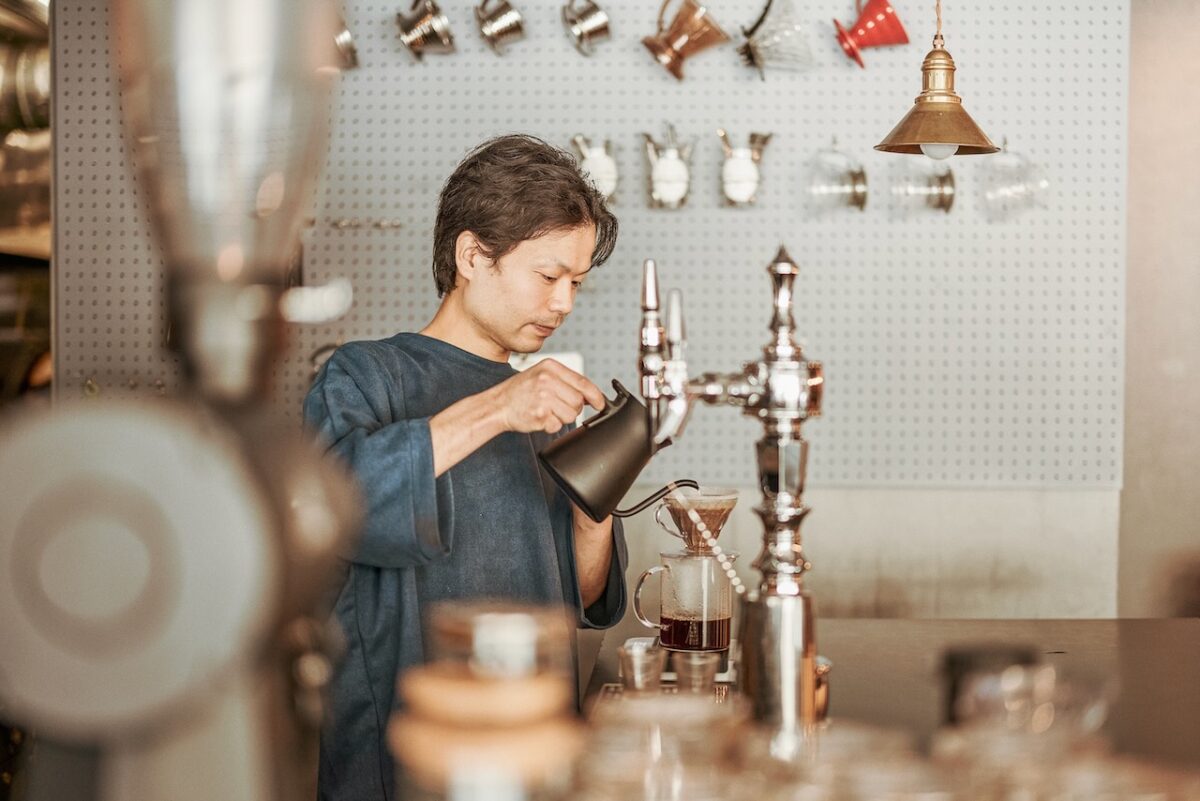
New friendships
Yonezawa acknowledges that hosting an event or drumming up cooperation isn’t his strong suit. He is a passive type who, when it comes to meeting new people, “bides his time until an opportunity presents itself,” he says.
“I think I was more cut out for performing tasks as I was told than starting something of my own accord. When I was working a kitchen job, or when I just started out roasting, all I could do was to learn the ropes. I was so eager to improve myself that I lacked the perspective of responding to customers’ needs.”
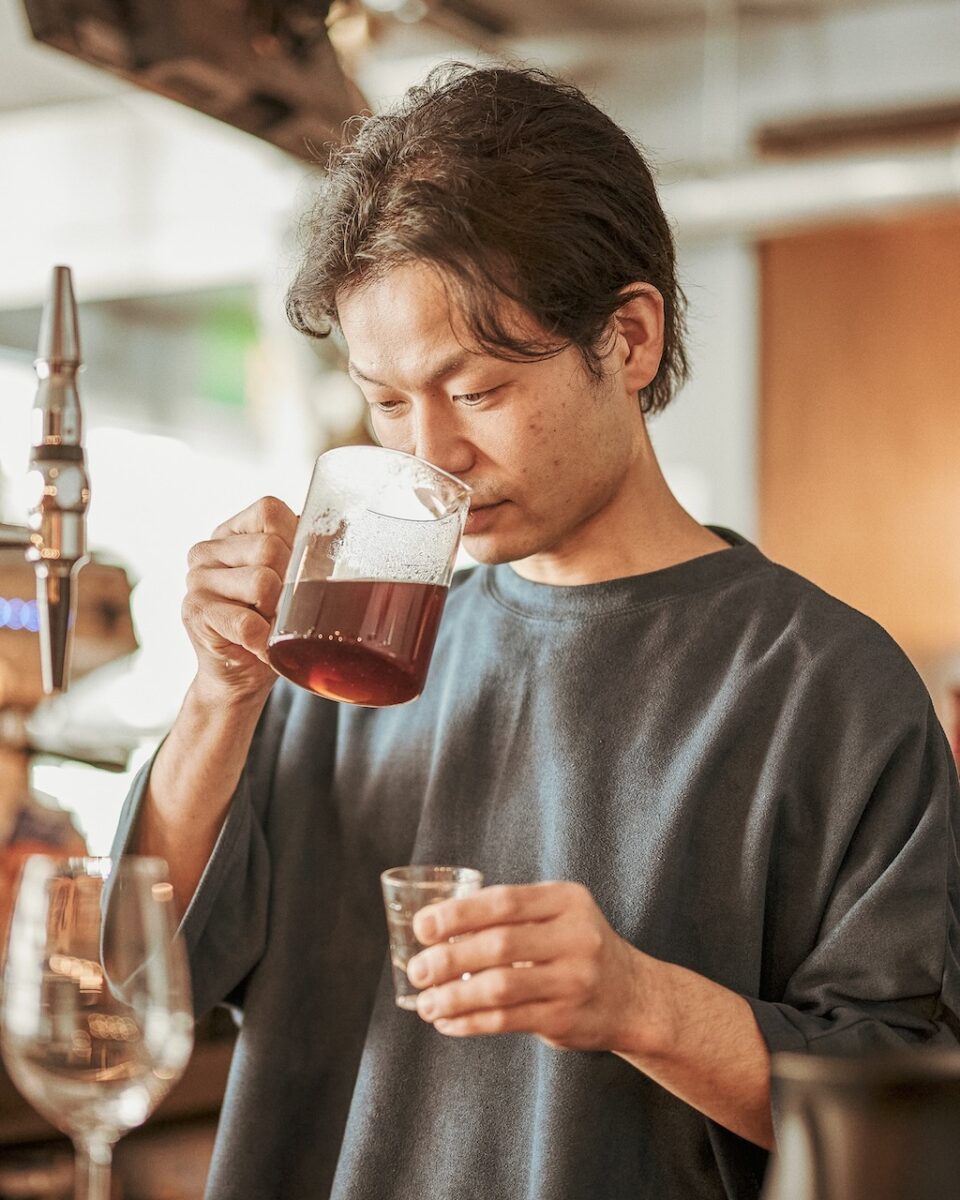
A turning point came at a cupping event Yonezawa held around a year ago. This event materialized thanks to his circle of connections that widened as he made the rounds of stores he’d wanted to visit and formed relationships with their roasters. These connections have evolved into a community. Ever since, being invited to events has become a frequent occurrence.
“When a fascinating idea occurs to me, I want to turn it into a concrete plan. People tend to float an idea but never actually act on it. I’d rather take a stab at it, perhaps because I like to dip into a wide range of activities. I may not be remotely as well-versed in an area as those who have been at it for many years. But it’s fun to keep broadening my perspective.”
Yonezawa’s network of relationships is ever-expanding, thanks to his broad scope of curiosity and interest. Looking back on 2021, he recounts that it has been a year of blissful encounters with potential project partners and staff members.
“I like teaming up with people to work on something together because working with someone with different ideas is an inspirational experience. Store owners and roasters may seem like lone wolves who prefer to stay alone. But when I actually met and talked with them in person, I found that many of them are looking for connections in the industry. And they often say they have an idea but don’t know how to put it into action. It’ll be interesting if we can casually take a crack at it for fun and see how it goes.”

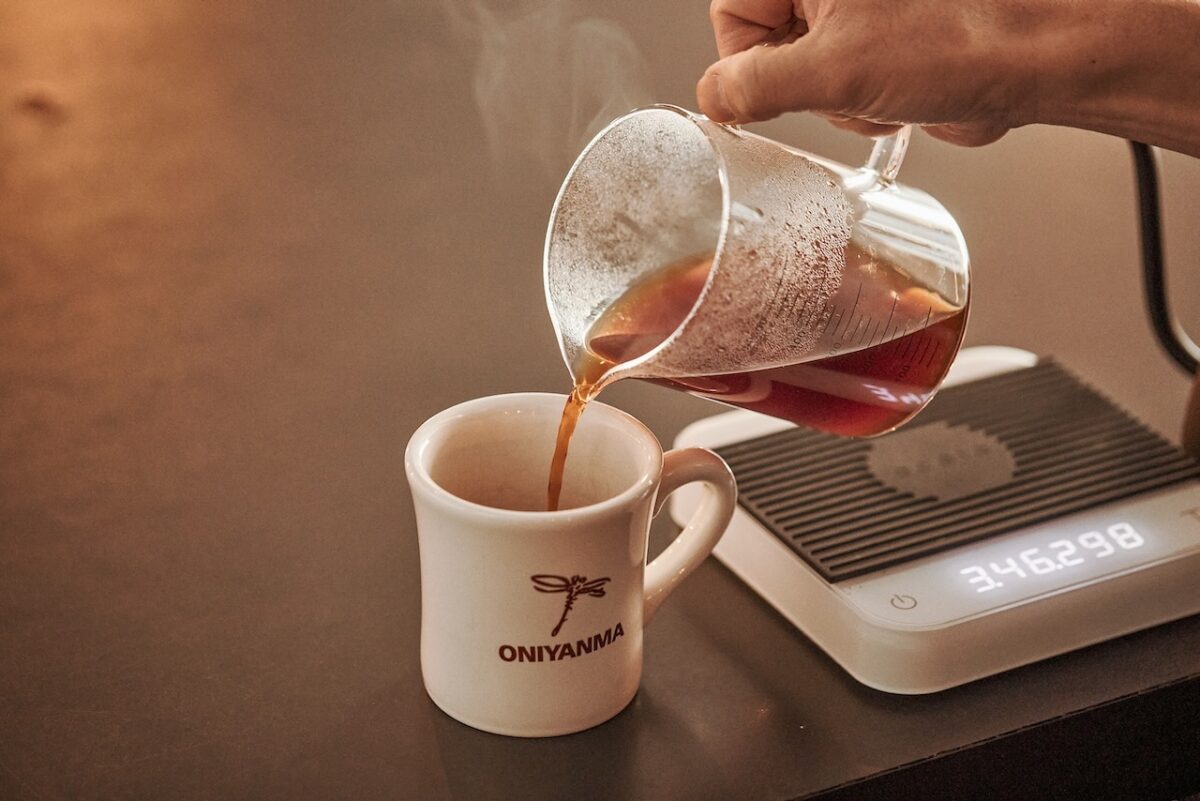
A hankering for a unique style
Specialty coffee struck Yonezawa as a fashionable drink with a sophisticated style. When he first tasted it, it almost seemed as if he was drinking something entirely different from the coffee he’d known.
“I was attracted by the urbane feel of this store – drippers and scales neatly arranged on the tidy counter, the espresso machine right by their side. Since establishments like this were far and few between back then, this shop and its unique style left a deep impression on me.”
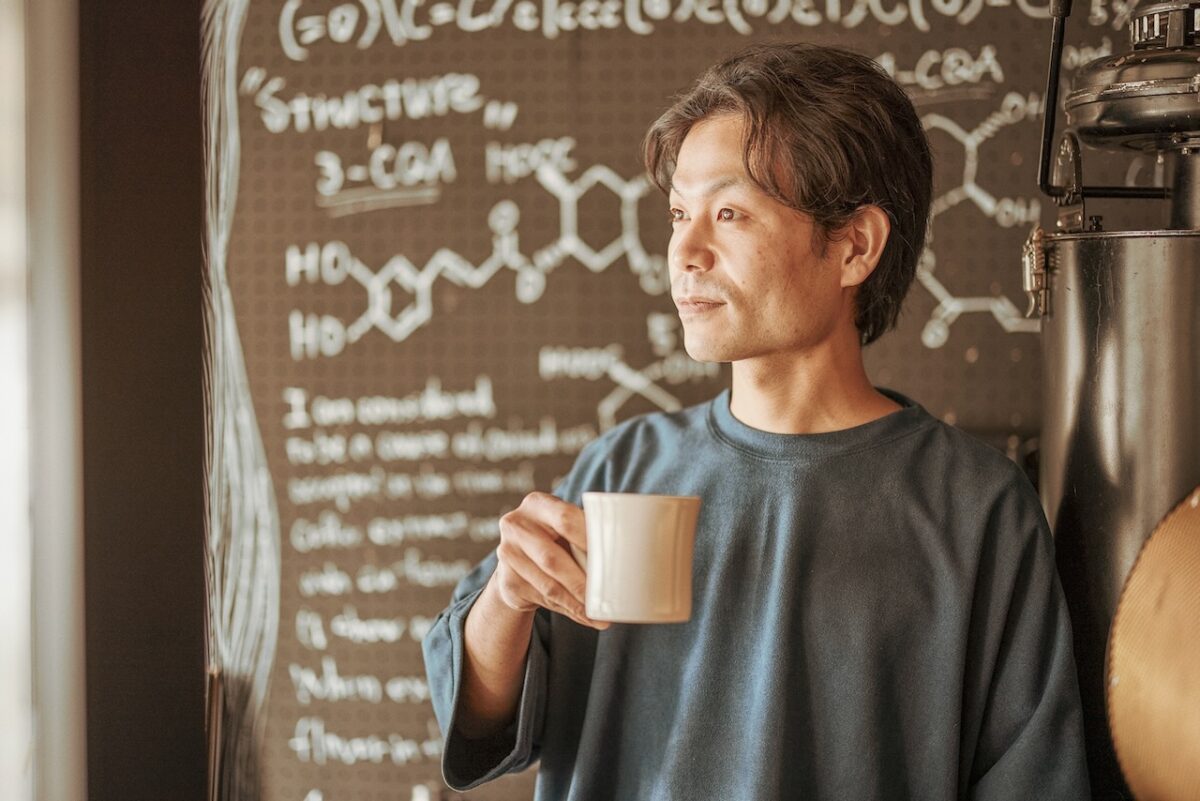
Yonezawa looks up to roasters with their own styles. This ideal of his was born out of his experience in music; Yonezawa moonlights as the drummer of a hardcore punk band.
“I admire creators of any kind. But those who steal the spotlight are the ones with unique styles. Not attaching yourself into one particular style is also beautiful. If you listen to the drum and know who’s playing, you could say the drummer has a style. I’m more attracted to musicians who produce their own sound than to ones who produce hit songs.
Coffee allows freer expression than cooking does. Coffee has spawned a bunch of new drinks like coffee cocktails. Coffee drinkers seem to have fine sensibilities and diverse ways to express them. I’m beginning to find it interesting to be able to easily put ideas into action.”

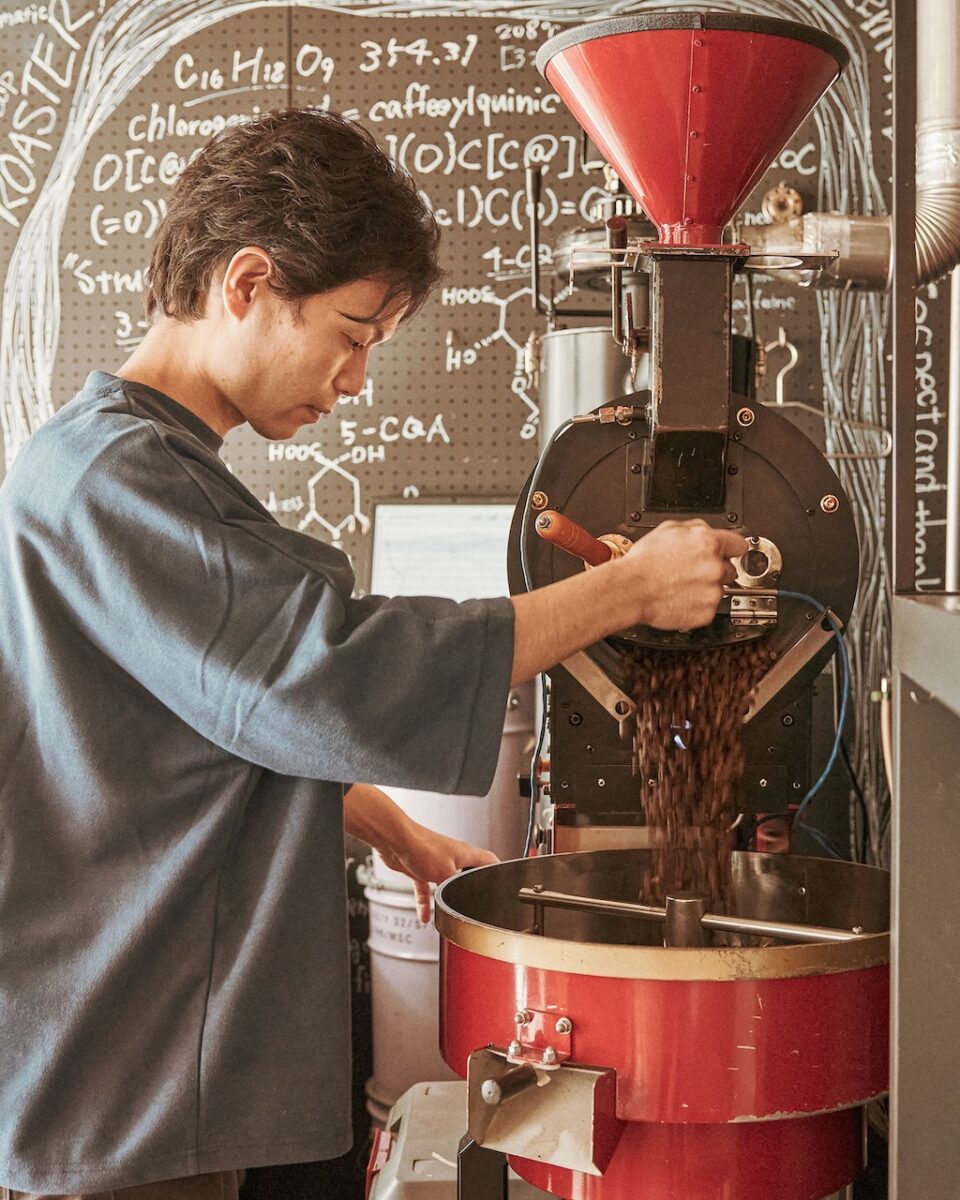
Yonezawa has worked on his roasting skills largely by himself since he learned it from the former store manager. But he had to overcome a high hurdle before he could start pursuing his own style.
“Though I learned theories in books and on the internet, that alone didn’t help me find my own style. Sometimes, one roaster recommends a certain roasting method while another vouches for the polar opposite of it. There were plenty of things I could figure out only after I gave them a go with my hands. Through many attempts of tweaking theoretically appropriate figures and seeing how coffee turned out, I was finally able to find my favorite roasting.
Still, I hit a stalemate every so often, and it is other people’s positive reviews that lift me out of the deadend. When I set the bar high for myself, I become dissatisfied with any of my coffee. And then when I hear someone say my coffee is delicious, it allows me to give it a passing mark. Music and coffee are the same in that I can give the green light to my creation only when others enjoy it.
It makes me happy to hear customers say, “This is delicious,” and to see them drink it up. A simple thing, but that’s the source of my motivation lately. Being in charge of both roasting and customer service, I’m grateful to have the chance to receive direct feedback from both staff and customers.
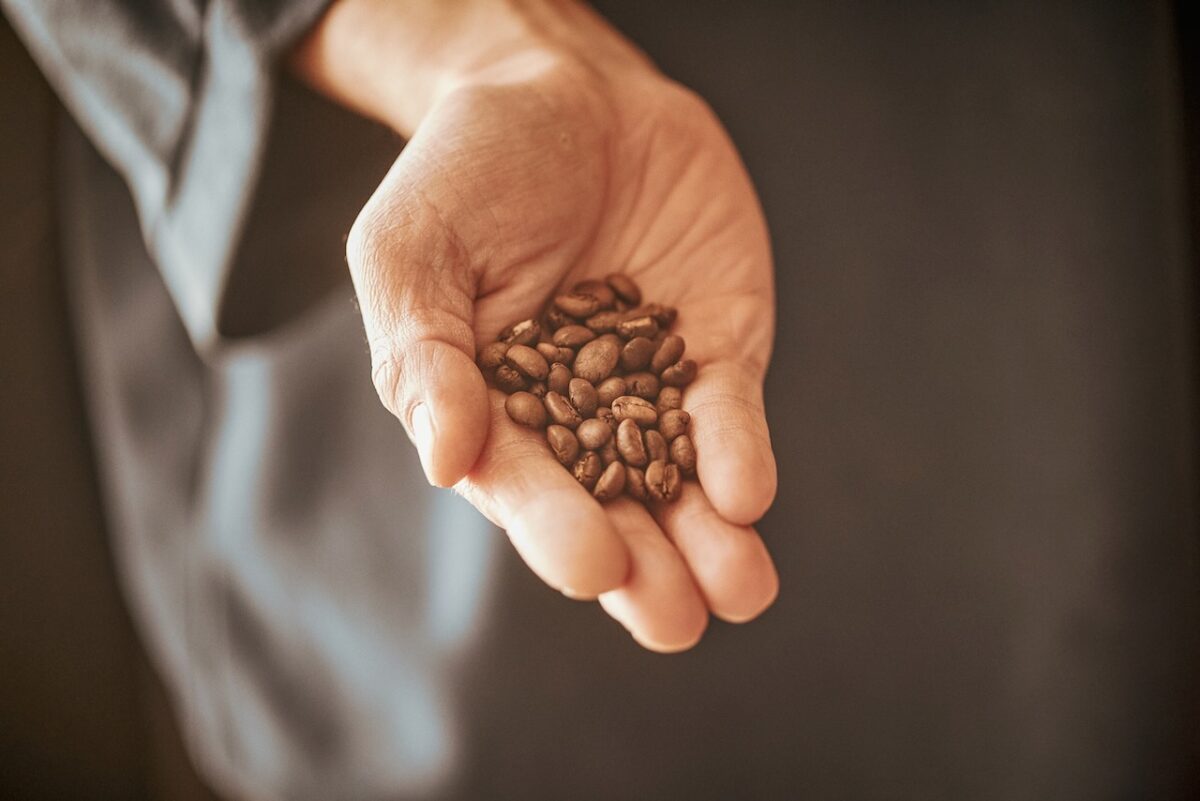
In the specialty coffee world, a style considered as the orthodoxy changes with the times. With new information and new green coffee constantly coming my way, I can always explore a new style. I find it important to have more experience and keep adding to my knowledge. That’s true of music, too. You listen to song after song and accumulate experience before you can truly express yourself. In that sense, I see a parallel between coffee and music.”
Yonezawa has yet to figure out exactly what kind of style he wants to aim for. But he feels its outlines emerging as his connections lead him to discover new forms of coffee experience. Yonezawa also draws inspiration from Sapporo’s growing coffee scene: In addition to the Coffee Marche fair, which has been around for some time, a young generation is now launching several coffee events in the city.
“I’d like to work with other roasters to start something while trying to pursue better roasting. Together with them, I want to expand this new wave that’s emerged in Sapporo. Just as I did with the coffee and whiskey pairing event, I want to create an entry point that welcomes people to specialty coffee.”
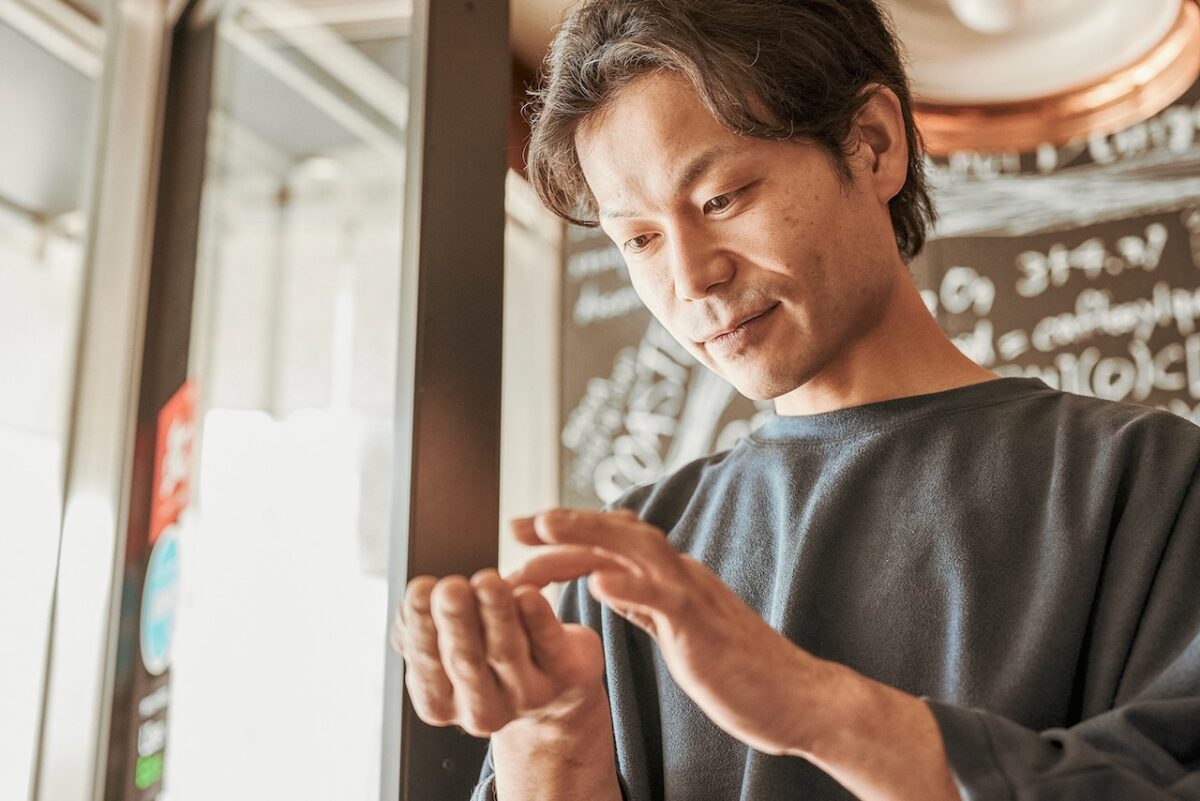
Yonezaa has played music for 18 years not because he wanted to make a living but because it was fun. His circle of friends in the music community, nurtured and expanded over the years, began to overlap his connections in the world of coffee.
“Nowadays, I often meet someone who happens to have a mutual friend. I’m glad I didn’t leave music. I find it fun to mix a diverse array of genres with coffee, such as music and alcohol, instead of focusing solely on coffee. That’s probably because I’ve gained a broad range of perspectives. Now, I’m inclined to try anything that piques my interest.”

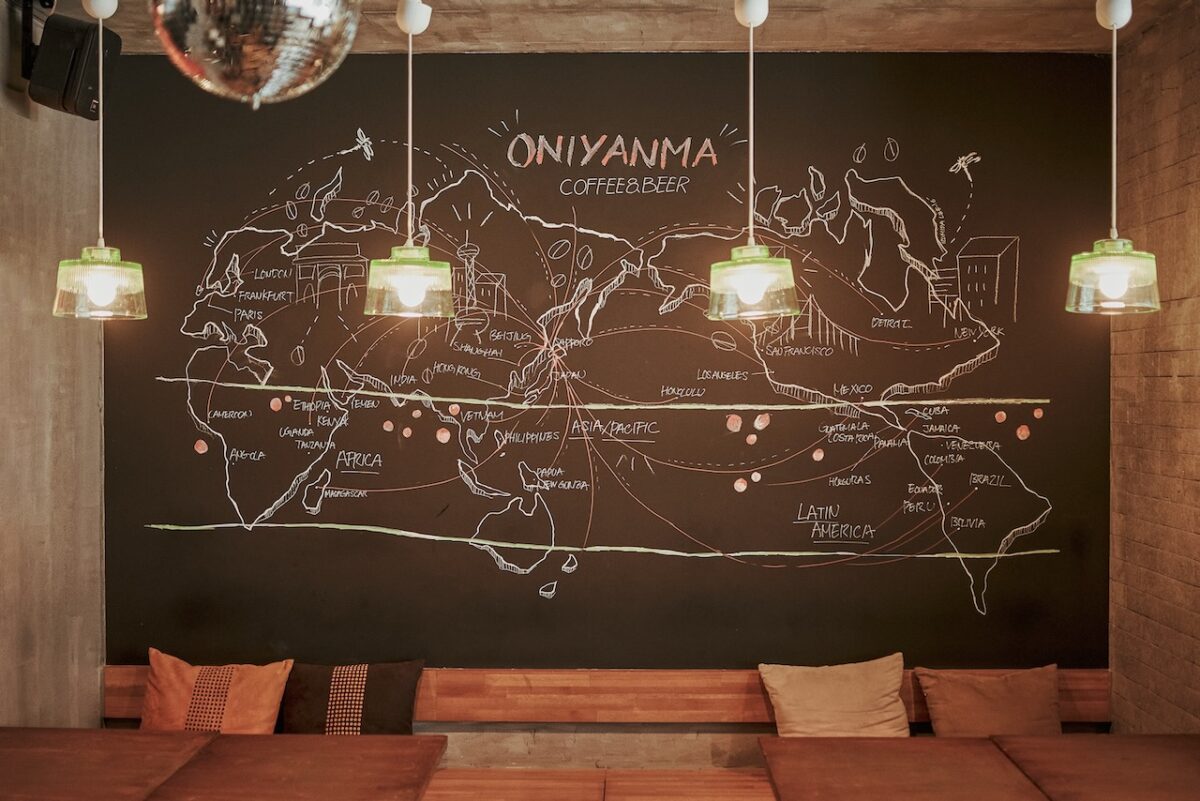
A link with producers
Yonezawa hopes to introduce more people to specialty coffee, in a bid to bring their attention to a myriad of problems facing coffee production. This yearning began with a conversation with a Guatemalan employee at a Sapporo-based green coffee importer who told him about the dire circumstances of coffee producing regions.
“Apparently, some people dump coffee pulp into the river, which results in pollution and foul odor. I’d looked at specialty coffee only with the eyes of an admirer. But I was surprised to learn that in some places, specialty coffee production comes at the expense of producers’ livelihoods and the environment.”
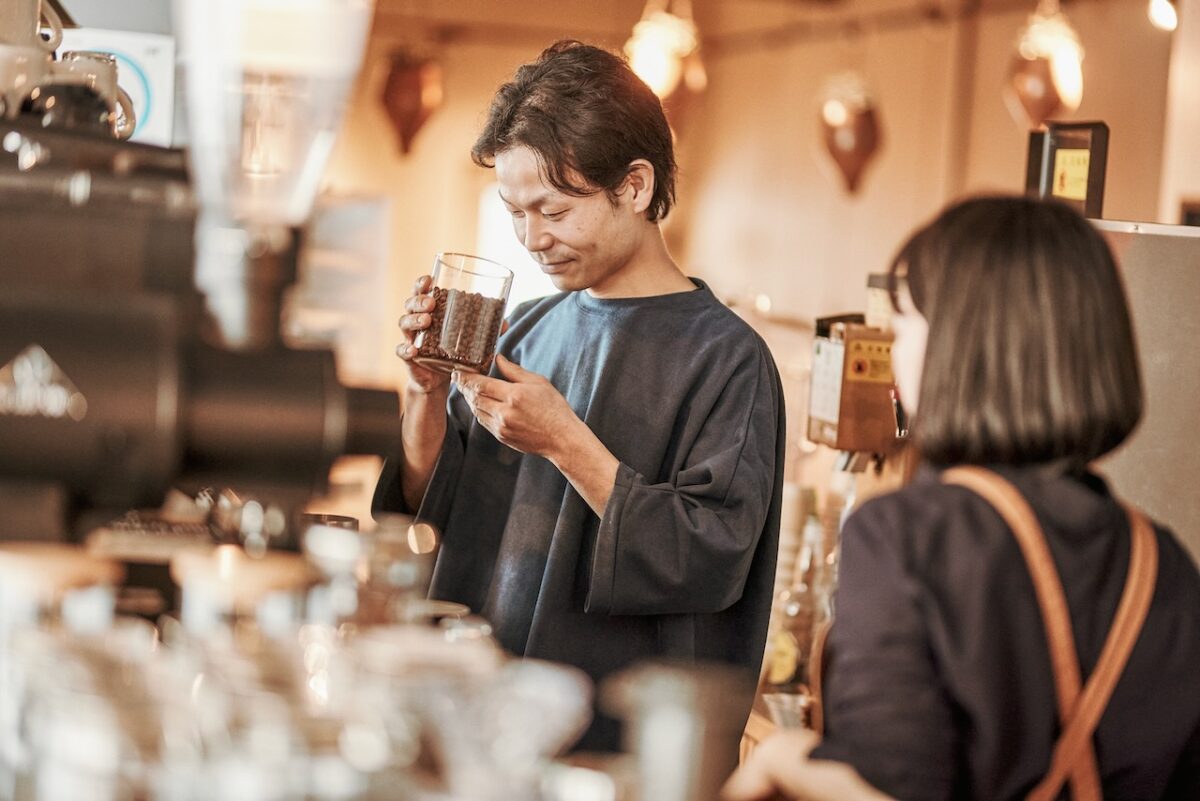
Yonezawa’s resolve became even stronger after meeting a woman, a then co-worker who has now left ONIYANMA COFFEE&BEER. Before joining the shop, the woman was a volunteer at a coffee farm from which his shop imports green coffee.
“She taught me about things you hardly see in books or on the internet, such as the wages and living standards of people in the area. That knowledge gave me a deeper sense of affinity for the coffee farm. I’ve never visited it myself. But having worked closely with someone who’s been there, I feel a certain connection of sorts with that farm when brewing coffee from there.
To tell stories of producers to people in Sapporo, I need to learn more about farms and what’s going on in the supply chain. Of course, offering good specialty coffee comes first and foremost. But while doing so, I hope to learn as much about origin countries as possible, together with customers.”
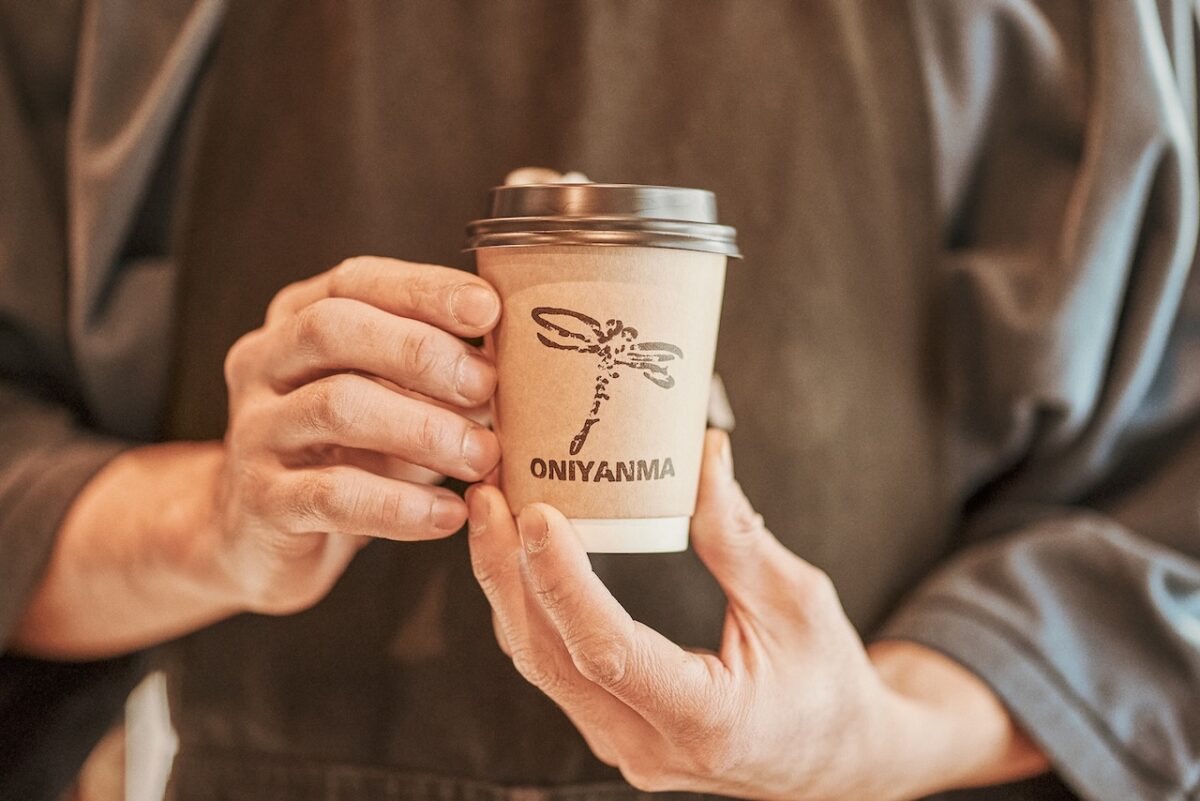
At the interface between coffee and music, Yonezawa’s network of relationships keeps widening, adding width to his way of expressing himself through coffee. Holding human connections close to his heart – between producers, roasters and consumers – Yonezawa is on his way to weave a roasting style he can call his own.
Originally written in Japanese by Chiho Maezawa
Edited by Tatsuya Nakamichi
Photos by Kenichi Aikawa

MY FAVORITE COFFEE人生を豊かにする「私の一杯」
My favorite coffee is one that I roast and brew myself, using green coffee from the farm where an ex-colleague used to work as a volunteer. I look forward to visiting Guatemala and other origins myself.

ONIYANMA COFFEE&BEER
- [営業時間]
- Mon-Sat: 8:00-19:00 / Sun: 11:00-19:00